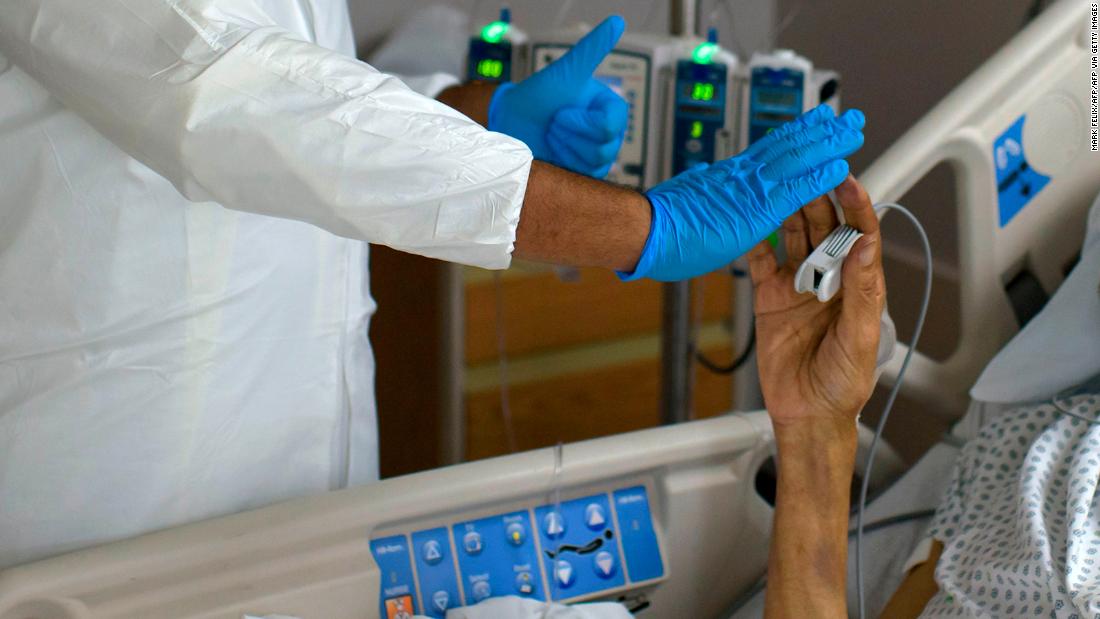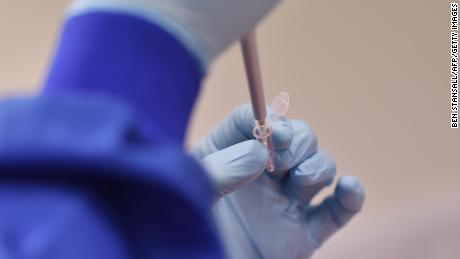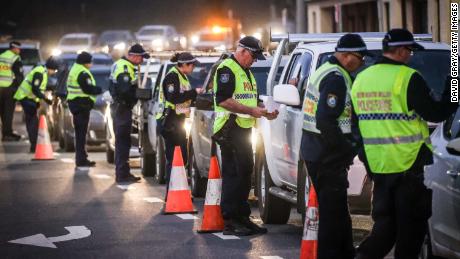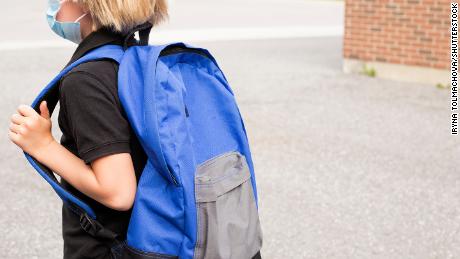More than a third of coronavirus patients feel symptoms for weeks, CDC says
The CDC surveyed 292 people who tested positive for the virus, and 35% said they still weren’t back to their usual good health even two or three weeks after testing positive.
While older people were more likely to feel prolonged symptoms, even young adults without underlying conditions reported feeling unwell for a long period of time, the CDC said.
Health experts have stressed the importance of testing to mitigate the spread of the coronavirus but have also said that people who do not show symptoms can spread of the virus.
On Friday, the US Food and Drug Administration announced an emergency use authorization for the first coronavirus test for asymptomatic cases — and even people who think they aren’t infected at all.
“FDA’s authorization of the first diagnostic test to be used for anyone, regardless of whether they are showing symptoms of COVID-19 or have other exposure risk factors, is a step toward the type of broad screening that may help enable the reopening of schools and workplaces,” FDA Commissioner Dr. Stephen Hahn said in a statement Friday.
Vaccine could help, but is a long way off
For those hoping to reopen the US after the coronavirus pandemic, vaccines have been a beacon of hope.
Dr. Anthony Fauci, director of the National Institute of Allergy and Infectious Diseases, said he believes that hope is warranted and that a vaccine could stop the pandemic in its tracks, but he also doesn’t believe that will happen until well into 2021.
“I think as we get into 2021, several months in, that you would have (a) vaccine that would be widely available to people in the United States,” Fauci told the Washington Post’s Bob Costa during a Post Live event.
Fauci noted that some companies have said they could have a vaccine available before the end of the year.
“I’m a little skeptical about that, but, you know, anything is possible,” he told the Post.
Once a vaccine is found and made available, the public will need to agree to take it in order for it to be effective. Former Centers for Disease Control and Prevention director Dr. Thomas Frieden said Friday that could be difficult.
“This is the first time we’ve had an anti-vaccine movement before we’ve had the vaccine,” Frieden said in a podcast sponsored by the online news site Axios.
“There’s already too much suspicion and hesitancy about vaccines, and the way to address that is to just say it like it is and be sure that we’re saying what we’re doing, when we’re doing it, what we’re learning, when we’re learning it,” said Frieden, who is now the president of Resolve to Save Lives.
States still setting records
Months into the US coronavirus pandemic, states across the nation are still setting new records for infections and deaths.
Oregon, which has mandated face coverings both indoors and outdoors, recorded nine new Covid-19 deaths Friday, its highest number since the outbreak began, according to the state’s health department.
California also reported its highest number of deaths from coronavirus on Friday, with 159 in a single day, according to data from the California Department of Public Health.
The Georgia Department of Public Health reported 4,813 new cases of Covid-19 on Friday — the highest number of new cases reported in a 24-hour period by the Georgia DPH since the pandemic began.
As cases rise, many local leaders are enforcing measures to protect against the virus.
New York Gov. Andrew Cuomo announced Friday that dozens of bars and restaurants in the state face charges related to coronavirus violations just this week.
And Mississippi Gov. Tate Reeves announced additional statewide restrictions on social gatherings, bars, restaurants and alcohol sales Friday, citing an increase in COVID-19 cases that are currently stressing the state’s hospitals.
“We have over 1,600 new cases today. And that number is simply not sustainable. It pushes us towards almost 6,000 new cases in the last four days alone,” the governor said at a news conference. “We have to do things a little bit differently. We have to be willing to make sacrifices as a state and as a people.”
Fauci supports CDC’s push to send kids back to school
The CDC released guidance Thursday pushing hard for schools to reopen, and Fauci called them “a sound set of guidelines.
“I think the CDC has put some good guidance down. I just took a quick look at them before I started in on the program, which was sent to me by my colleagues at the CDC. So I think it’s a sound set of guidelines,” Fauci told Costa during the Post Live interview.
The guidelines point to studies showing that children are not at high risk of severe symptoms from coronavirus, as well as to studies showing younger children may not be important vectors for the spread of the virus.
“There’s still a lot to learn about what the prevalence and incidence of infection is in children,” Fauci said.
Fauci added the National Institutes of Health has a study underway that is looking at 2,000 families to find, among other things, how frequently children get infected and if they transmit it to adults. It’s expected to produce results by December, he said.
“Even though we have some information about that, we still need more,” Fauci said.
CNN’s Jen Christensen, Rob Frehse, Sarah Moon, Shelby Lin Erdman, Eileen McMenamin, Chandler Thornton and Gisela Crespo contributed to this report.
![]()








